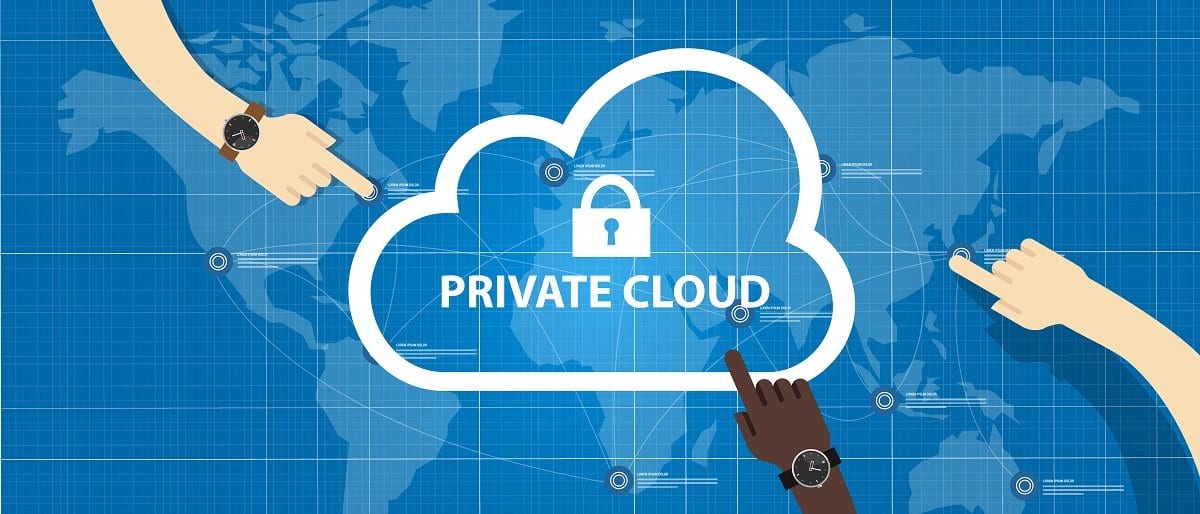The term “private cloud” isn’t just a buzzword any more. Cloud computing has been around for a dozen years now. Taking advantage of this technology shouldn’t be seen as simply jumping on a trend but a way to better manage your company’s website and data. Having a private cloud provides many benefits for businesses. Here are three of them.
Private cloud improves security
Website security should be of utmost importance to all businesses. Using a public cloud for your data is cause for concern. Public clouds—like Google Apps, Amazon Web Services, Microsoft Azure—are owned and operated by a third-party provider.
You will likely not ever know what kind of facility houses the server. It might even be physically located in a different country governed by an entirely different set of security and/or privacy regulations.
Additionally, the infrastructure of a public cloud is shared by many clients. If something happens to that third party, it happens to you. Just a single data breach could irreparably harm your business, including everything from loss of productivity to loss of revenue.
A private cloud, on the other hand, is infrastructure dedicated entirely to your business. Your company hosts it on-site by your IT department or in a service provider’s data center. A private cloud sits behind your firewall and limits access to your employees, customers or others to whom you grant access. When you are able to ensure the physical location, anti-virus software and firewall, security isn’t left to chance. It is as secure as you are able to make it.
Private cloud saves money
While the shift to a private cloud may initially be expensive due to purchasing necessary hardware, over the long term many businesses discover it’s actually more cost-effective than public cloud use. Consider it an investment like home ownership. Organizations that don’t have a lot of money up front often opt for the public cloud, much like renting an apartment.
Cost savings are often due to flexible licensing arrangements, automation, tools, and full ownership of applications. Depending on the size of your organization, the savings could be great. For example, simply being able to ensure availability of resources to individual departments increases efficiency.
Of course, when considering the security risk associated with a public cloud, you have to consider how much your time, energy, data and reputation are worth should they be lost. What would that ultimately mean to your bottom line?
Private cloud is customizable
Every business is unique. Having infrastructure that is customized specifically for an individual business is much better than some one-size-fits-all option because that solution often falls short. A private cloud allows businesses to set specific technical requirements according to company size, industry, number of employees, type of website, business objectives, types of data and more. It is possible to set up infrastructure with appropriate storage and networking characteristics required to run your business as you need it to be run.
Wondering about your website security, data and considering the move to a private cloud? Let’s talk. We’ll help you define your goals and find what’s best for you. Just give us a call and we can assist.






Leave A Comment